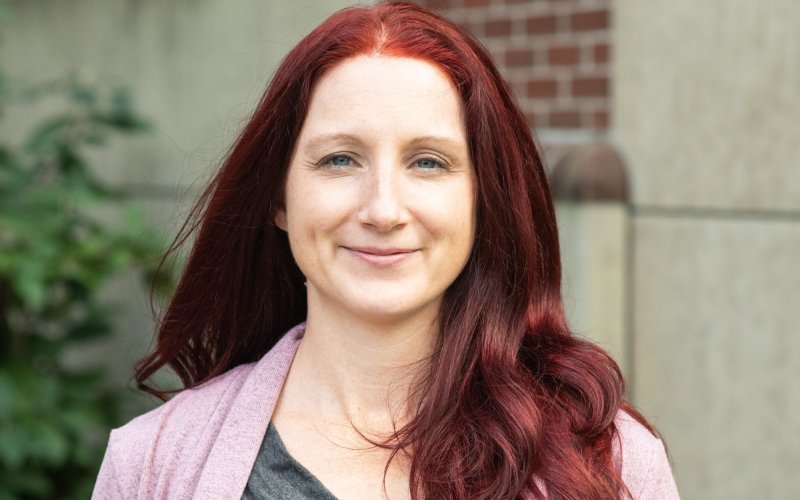Cold Case Analysis Center Comes to UAlbany’s School of Criminal Justice

ALBANY, N.Y. (Aug. 5, 2024) — This fall, UAlbany students will be able to help investigative agencies and the community solve cold cases — including missing persons and unsolved crimes — through internships in the Cold Case Analysis Center, located within the School of Criminal Justice on the Downtown Campus.
The Cold Case Analysis Center, or CCAC, moved to UAlbany under the leadership of Camela Hughes after the College of Saint Rose closed in spring of 2024. Hughes, now a visiting assistant professor in UAlbany’s School of Criminal Justice, got her master’s and PhD degrees from UAlbany.
Both undergraduate and graduate students can apply for CCAC internships through the UAlbany website. Applicants must provide a letter of recommendation and pass a background check. Those chosen will be placed on interdisciplinary teams to work along with investigative agencies, prosecutors, nonprofits and families to try to resolve cases.
“Students in a wide variety of disciplines, including criminal justice, forensics, psychology, sociology, history and biology, have the opportunity to work together to analyze cold cases,” Hughes said of the center. “The collaborative work not only gives students hands-on experiences that help them understand the complexities of the criminal justice system, it also teaches critical thinking and organizational skills that will benefit them later.”
Intern teams’ work includes analyzing case files, making recommendations for additional interviews or forensic tests, reconstructing crime scenes, conducting archival research and identifying suspects. Students will also participate in weekly lectures to reinforce concepts learned in other courses, such as Criminology, Wrongful Convictions, and Victims of Crime. Because some cold cases are decades old, CCAC interns also help to raise awareness of victims’ stories.
"The CCAC offers great opportunities for our students and is an excellent example of scholar-practitioner partnerships," said Matthew Ingram, an associate professor of political science and public policy and the interim senior executive director of the School of Criminal Justice, which is housed within Rockefeller College of Public Affairs and Policy.
“The Cold Case Analysis Center enriches Rockefeller College’s commitment to providing students with opportunities to learn by doing,” Rockefeller Dean Julie Novkov said. “It also expands our college’s mission to serve the public interest. Our students will benefit and contribute to the public good by doing concrete work through the CCAC now that also prepares them well for future careers.”
The center is expected to have about 20 student interns per semester, with potential to grow in the future. Students from the Albany College of Pharmacy and Health Sciences (ACPHS) also can apply for internships at CCAC, as part of an arrangement through the Hudson/Mohawk Association of Colleges & Universities.
"The relocation of the original Cold Case Analysis Center to the University at Albany will provide the infrastructure and support to make this a model program in the United States,” said Robert Flint, director of ACPHS’s psychology and forensic psychology progams and the former head of the forensic psychology and criminal justice programs at Saint Rose. “I can think of no one better or more well qualified to foster and to continue running this center than Dr. Camela Hughes. Our students at ACPHS are excited to be able to continue their cold case experience this fall."
Pamela Hoxha, a senior criminal justice major who transferred to UAlbany from Saint Rose, plans to continue working at the center.
"I wanted to join CCAC because I knew that by participating in the program, I would have the chance to be a part of a team that would put in a lot of effort to try and provide the families of the victims with closure,” Hoxha said. “I became more detail oriented and thorough when working on cold cases. It gave me practical experience with unsolved crimes and made me feel part of the solution."
Hughes said the CCAC is a great fit for UAlbany. “In addition to the connection with a top-5 ranked criminal justice program, being embedded in a comprehensive, diverse, public research institution with access to renowned scholars in related fields like psychology, sociology, atmospheric and environmental sciences and forensic chemistry and biology will provide students with amazing support as they analyze cases.”




